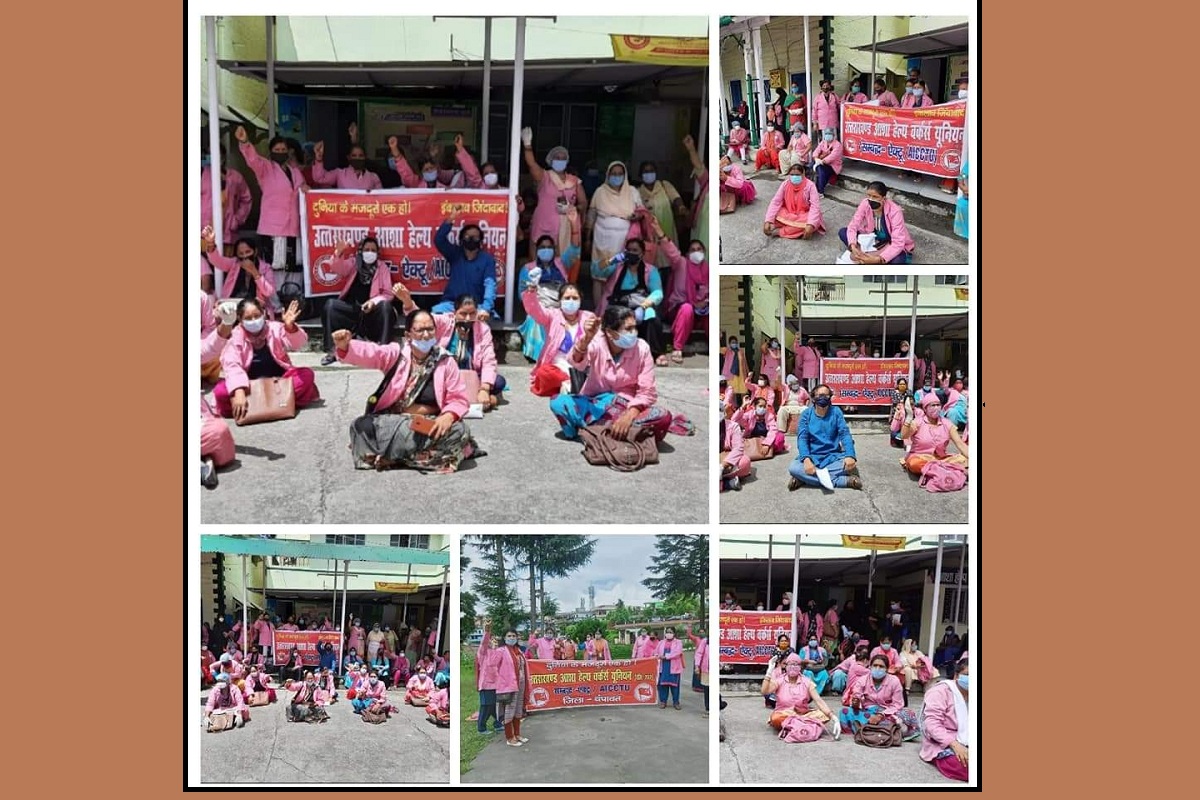30 Indian startups secure $287 million funding this week
This included six growth-stage deals and 20 early-stage deals, Entrackr reported on Saturday
ASHA workers, considered volunteers and thus beyond the pale of minimum wage restrictions, are sometimes paid as little as Rs 4,000 a month, and that too not on time.

(Image: Twitter/@yadav_vikash_)
Mercifully, a large section of India’s army of Accredited Social Health Activists (or ASHA workers as they are known) have chosen only to resort to a two-day token strike to press their demands. A longer agitation would cripple primary healthcare at a time when it is needed the most. Fighting the battle against coronavirus from the trenches, facing abuse, harassment and even physical assault, these workers are India’s unsung warriors.
And yet they are paid humiliatingly low wages, made to work inordinately long hours and face untold risks as they offer the primary link to health for India’s poor. ASHA workers, considered volunteers and thus beyond the pale of minimum wage restrictions, are sometimes paid as little as Rs 4,000 a month, and that too not on time.
It must be a matter of abiding shame for the Government that while it has found time to occupy itself with religious extravaganzas and investigations into the death of a film star, it has not found it possible to bestir itself in the cause of these workers, all of them women.
Advertisement
The Union government has absolved itself of responsibility by saying it has released funds, including additional allowances for being part of the fight against Covid-19 and that the problem must lie with State governments.
While some states have unilaterally hiked the amounts paid to these workers ~ Kerala and Telangana now pay Rs 7,000 a month while Karnataka pays them Rs 10,000 ~ many including Uttar Pradesh, which found it possible to bedeck Ayodhya at considerable cost just the other day, West Bengal and Haryana have delayed disbursement of even regular dues.
Created under the National Health Mission of 2005, ASHA workers were expected to work two or three hours each day, establishing contacts with the country’s poorest families and providing advice on basic healthcare including sanitation, menstruation and inoculation.
With the outbreak of the virus, their roles expanded as they became the first responders when symptoms were reported, quarantine monitors and contact tracers. In some states, they were also given the responsibility of delivering groceries and medicine to people in containment zones.
In addition, they were asked to monitor elderly persons living alone and pregnant women. Workers complain they were asked to perform these duties without even basic protective equipment being provided to them. Almost from the beginning of the virus outbreak, there have been reports of ASHA workers facing attacks.
While there was nationwide outrage at attacks in Indore, Bengaluru and other places, tangible appreciation of the work they have put in has not been forthcoming. Now with the cauldron of their woes having bubbled over, it is incumbent on governments to respond quickly to their plight. That is the least India owes them.
Advertisement